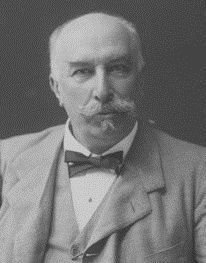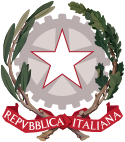
Electoral reform in New Zealand has, in recent years, become a political issue as major changes have been made to both Parliamentary and local government electoral systems.

Agostino Depretis was an Italian statesman and politician. He was the Prime Minister of Italy for several times between 1876 and 1887 and leader of the Historical Left parliamentary group for more than a decade. He is the fourth-longest serving Prime Minister in Italian history, after Benito Mussolini, Giovanni Giolitti and Silvio Berlusconi. Depretis is widely considered one of the most powerful and important politicians in Italian history.

A referendum, in the Italian legal system is a request directed to the whole electorate to express their view on a determined question. It is the main instrument of direct democracy in Italy.

The 2006 Italian general election for the two Chambers of the Italian Parliament was held on 9 and 10 April 2006. Romano Prodi, leader of the centre-left coalition The Union, narrowly defeated the incumbent Prime Minister Silvio Berlusconi, leader of the centre-right coalition House of Freedoms.

Elections in Guyana take place within the framework of a multi-party representative democracy and a presidential system. The National Assembly is directly elected, with the nominee of the party or alliance that receives the most votes becoming President.

A referendum on maintaining the monarchy was held in Greece on 1 September 1946. The proposal was approved by 68.4% of voters with a turnout of 88.6%.

A constitutional referendum was held in Greece on 29 July 1973. The amendments would abolish the monarchy and establish a republic. The proposal was approved by 78.6% of voters with a turnout of 75.0%. This initiated the first period of the Metapolitefsi.
A constitutional referendum was held in Greece on 15 November 1968. Voters were asked whether they wished to ratify a new constitution prepared by the dictatorial regime. It was approved by 92.1% of voters, with a voter turnout of 77.7%.
A referendum on the Order law was held in Luxembourg on 6 June 1937. Voters were asked whether they approved of the new law, which would ban any political party that sought to change the constitution or national legislation by violence or threats. The law would result in the dissolution of the Communist Party, and became known as the Maulkuerfgesetz.

A referendum on revoking some medical and tuition fees was held in Hungary on 9 March 2008. The proposals would cancel government reforms which introduced doctor visit fees paid per visitation and medical fees paid per number of days spent in hospital as well as tuition fees in higher education. All three were supported by a majority of voters. Prime Minister Ferenc Gyurcsány stated that the fees would be abolished on 1 April 2008 following the referendum, but that the government had no funds available to replace the income lost for the higher educations institutions and health institutions due to the abolishment of the fees.
A referendum on constitutional reforms was held in Morocco on 1 July 2011. It was called in response to a series of protests across Morocco that began on 20 February 2011 when over ten thousand Moroccans participated in demonstrations demanding democratic reforms. A commission was to draft proposals by June 2011. A draft released on 17 June foresaw the following changes:

Full general elections were held in Belgium on 14 October 1894, with run-off elections held on 21 October 1894.

An eight-part referendum was held in Italy on 18 April 1993. Voters were asked whether they approved of the repealing of laws on limiting intervention of local health units in dealing with environmental pollution, limiting the use of medicinal drugs, political party finances, the use of proportional representation in the Senate of Italy and the regulation of public banks, as well as the abolishment the Ministry of Agricultural, Food and Forestry Policies, the Ministry of State Holdings, the Ministry of Tourism. All eight proposals were approved with support ranging from 55.3% to 90.3%.

A twelve-part referendum was held in Italy on 11 June 1995. Voters were asked whether they approved of the repealing of laws on union representation, union dues, collective contracts for public sector workers, internal exile for mafia members, public ownership of RAI, concessions for television channels, advertising breaks during films, television publicity, commercial licensing, local council elections and shopping hours. Only five of the twelve proposals were passed.

A referendum on the electoral law was held in Italy on 18 April 1999. Voters were asked whether they approved of replacing the mixed-member proportional representation electoral system with one based solely on single-member constituencies, with the 25% of seats instead allocated to the second-placed in the constituencies with the most votes. The proposal was supported by larger parties, but opposed by smaller ones. Although the proposal was approved by 91.5% of voters, turnout was only 49.6%, resulting in the referendum being invalidated as the threshold of 50% was not passed.

A constitutional referendum was held in Italy on 7 October 2001. The amendment was proposed by the Silvio Berlusconi government. Voters were asked whether they approved of amending the constitution to give more powers to the regions on issues including agriculture, education, healthcare and taxation. The proposals were approved by 64.2% of voters.

General elections were held in Italy on 3 June 1900, with a second round of voting on 10 June. The "ministerial" left-wing bloc remained the largest in Parliament, winning 296 of the 508 seats.

A referendum on the transfer of church property was held in Latvia on 1 and 2 September 1923, the first time a referendum had been held in the country. Voters were asked whether the government should be stopped from transferring the Lutheran St James's Church in Riga to the Roman Catholic Church. Although a large majority voted for the proposal, voter turnout was well below the level required, and the church building was subsequently given to the Catholic Church.

A referendum on the "double yes" for referendums was held in Liechtenstein on 13 September 1987. The proposal would mean that during referendums on draft legislation, voters would have the option of rejecting all proposals, agreeing with one proposal, or agreeing to several. If voters were to agree with several, they had to rank them in case more than one was approved by voters. It was approved by 62.9% of voters.
Fifteen referendums were held in Switzerland during 2000. The first five were held on 12 March on reforming the judiciary and four popular initiatives; "for speeding up direct democracy ", "for a just representation of women in federal authorities", "for the protection of men against manipulations in procreation technology" and one to reduce motorised road by 50%. Whilst the judiciary reform was approved, all four popular initiatives were rejected. The next referendum was held on 21 May to authorise sectoral agreements between Switzerland and the European Union, and was approved by around two-thirds of voters.















